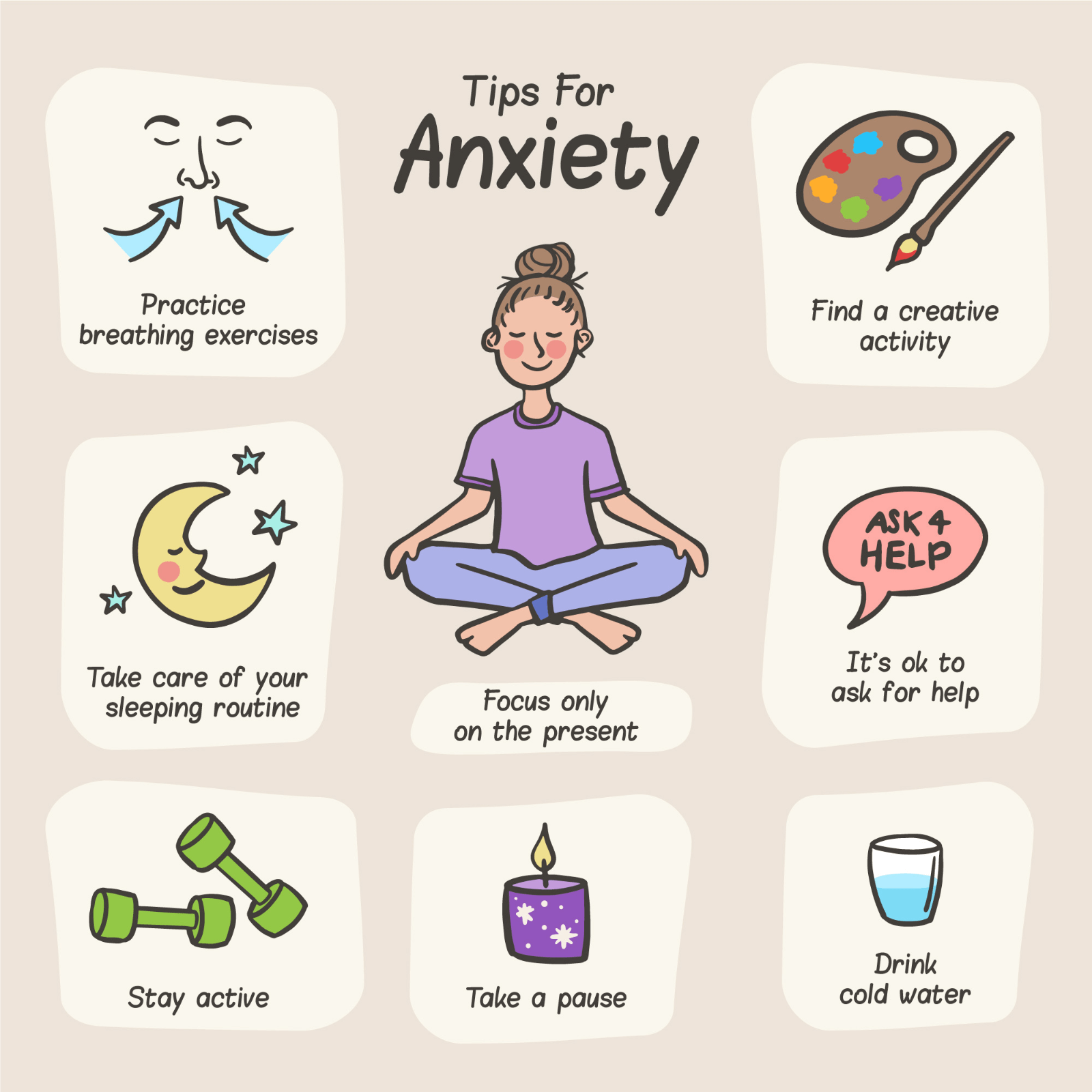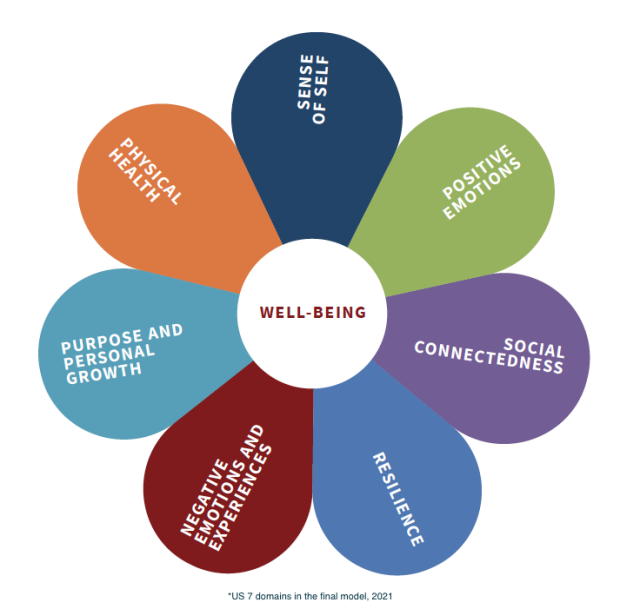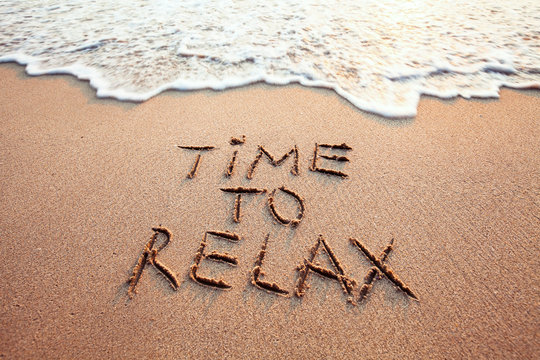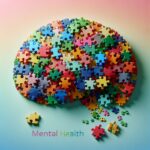Key Takeaways
- Exercise is a powerful stress reliever. Just 30 minutes of physical activity a day can significantly lower stress levels.
- Mindfulness practices, like meditation, can enhance emotional well-being and reduce anxiety.
- Yoga combines physical and mental disciplines to help you relax and manage stress effectively.
- Spending time with loved ones and pets can boost your mood and decrease feelings of anxiety.
- Eating a balanced diet with stress-reducing foods can improve your mental health.
Understanding Stress, Tension, and Anxiety
Stress, tension, and anxiety are terms we often hear, but what exactly do they mean? Stress is your body’s reaction to any change that requires an adjustment or response. It can be positive, keeping us alert and ready to avoid danger, or negative, leading to health issues when prolonged.
Tension is the physical manifestation of stress. It’s that tight feeling in your shoulders or the headache that won’t go away. Anxiety, on the other hand, is more about persistent worry or fear that doesn’t go away even when the stressor is absent. Understanding these terms is the first step in managing them effectively. For those struggling with anxiety, exploring tips for restoring power can be beneficial.

“How to Solve Stress and Anxiety” from www.calmclinic.com and used with no modifications.
What They Are and Why They Happen
Stress happens when you feel overwhelmed or unable to cope with mental or emotional pressure. This can be due to work, relationships, or financial issues. Tension is what you feel in your body as a result of stress. You might notice tense muscles or a racing heart.
Anxiety is a bit different. It’s more than just feeling stressed. It’s a feeling of fear or apprehension about what’s to come. It’s like being on high alert even when there’s no immediate threat. This happens because your brain perceives a threat, real or imagined, and prepares your body to deal with it.
Impact on Daily Life and Health
When stress, tension, and anxiety become chronic, they can have a significant impact on your life. You might find it hard to concentrate, feel constantly tired, or become easily irritable. It can affect your relationships, work performance, and overall quality of life.
Most importantly, chronic stress can lead to serious health problems. It can increase the risk of heart disease, lead to high blood pressure, and weaken your immune system. Therefore, managing these feelings is crucial for maintaining both mental and physical health.
Physical Activities That Help Reduce Stress
Engaging in regular physical activities is a powerful way to alleviate stress and enhance your overall well-being. Whether it’s a brisk walk, a session of yoga, or a high-intensity workout, these activities can significantly reduce tension and anxiety. In addition to physical exercise, incorporating techniques like visualization techniques can further amplify the stress-relieving benefits by helping you focus and calm your mind.
Physical activity is one of the most effective ways to combat stress. It boosts the production of endorphins, the body’s natural mood lifters. Whether it’s a vigorous workout or a gentle walk, exercise can significantly reduce stress and anxiety. For those interested in exploring more ways to enhance well-being, consider reading about top methods for well-being insights.

“Stress Relief with Workouts – Beaumont …” from beaumonteh.com and used with no modifications.
Exercise for Stress Relief
Exercise doesn’t have to mean hitting the gym for hours. Even short bursts of physical activity can be beneficial. Try a brisk 30-minute walk, a dance class, or even playing a sport you enjoy. The key is consistency. Make exercise a regular part of your routine, and you’ll notice the benefits.
Studies show that regular exercise can help reduce symptoms of anxiety and depression. It can also improve sleep, boost self-esteem, and provide a sense of control over your body.
Benefits of Yoga and Pilates
Yoga and Pilates offer numerous benefits for both the mind and body. These practices can help enhance flexibility, improve posture, and boost mental clarity. Additionally, engaging in these activities regularly can be a powerful method for developing wisdom and well-being, contributing to a more balanced and fulfilling life.
Yoga and Pilates are excellent for reducing stress and tension. They combine physical movement with breath control and meditation, which can help calm the mind and body. For more insights on enhancing well-being, explore these wisdom development methods.
Yoga, in particular, is known for its stress-relieving properties. It encourages relaxation and mindfulness, helping you to let go of stress and tension. Pilates focuses on core strength and stability, which can improve posture and reduce physical stress on the body.
Both practices can be done at home with little equipment. They offer a gentle yet effective way to manage stress and improve overall well-being.
Mental and Emotional Techniques for Stress Management
Besides physical activity, there are mental and emotional techniques that can help manage stress. These techniques focus on calming the mind and promoting a sense of peace.
Mindfulness Practices and Their Benefits
Mindfulness is the practice of being present in the moment without judgment. It involves paying attention to your thoughts, feelings, and sensations in a non-reactive way. Mindfulness can reduce stress, improve focus, and enhance emotional resilience.
One simple way to practice mindfulness is through meditation. Set aside a few minutes each day to sit quietly and focus on your breath. Notice your thoughts as they come and go, without getting caught up in them. Over time, this practice can help you develop a more balanced and calm state of mind.
Connecting with Friends and Loved Ones
Connecting with friends and loved ones can be a powerful way to reduce stress and anxiety. When we share our thoughts and feelings with those we trust, it can lighten our emotional load and provide a sense of belonging. Regular communication, whether through a phone call, a video chat, or an in-person meeting, can significantly boost your mood and help you feel supported. For more strategies, consider these simple ways to relieve stress and anxiety.
Besides that, having a strong social network can provide practical support during tough times. Friends and family can offer advice, lend a helping hand, or simply be there to listen. So, don’t hesitate to reach out to them when you’re feeling overwhelmed. Remember, you don’t have to go through difficult times alone. For additional tips on managing stress, check out these simple ways to relieve stress and anxiety.
Making Time for Pets
Spending time with pets can be incredibly soothing and beneficial for mental health. Pets offer unconditional love and companionship, which can help reduce feelings of loneliness and anxiety. Whether you’re playing with a dog, cuddling a cat, or watching fish swim, interacting with animals can have a calming effect on your mind and body.
Research has shown that pet owners often experience lower stress levels and improved mood. Pets can also encourage physical activity, such as walking a dog, which further helps in reducing stress. If you don’t have a pet, consider volunteering at a local animal shelter or spending time with a friend’s pet. The joy and relaxation that animals bring can be a wonderful addition to your life. For more tips, check out these ways to relieve stress and anxiety.
Moreover, pets can serve as a great distraction from everyday worries. Their playful nature and need for attention can keep you engaged and focused on the present moment. This shift in focus can help alleviate anxiety and promote a sense of well-being. For more insights on enhancing well-being, explore well-being insights.

“Stanford Medicine” from med.stanford.edu and used with no modifications.
Nutritional Choices That Aid Stress Reduction
What you eat can have a significant impact on how you feel. A balanced diet not only supports physical health but also plays a crucial role in managing stress and anxiety. Certain foods can enhance mood, boost energy levels, and improve mental clarity.
Foods That Support Mood Enhancement
Foods rich in omega-3 fatty acids, such as salmon, walnuts, and flaxseeds, are known to support brain health and improve mood. Similarly, foods high in antioxidants, like berries and dark chocolate, can help combat oxidative stress and inflammation, which are linked to anxiety.
Complex carbohydrates, such as whole grains and legumes, can increase serotonin levels in the brain, promoting a sense of calm and relaxation. Including a variety of colorful fruits and vegetables in your diet ensures you get essential vitamins and minerals that support overall mental health.
Caffeine and Sugar: What to Watch Out For
While a cup of coffee can provide a temporary boost in energy, excessive caffeine intake can lead to increased anxiety and restlessness. It’s important to monitor your caffeine consumption and opt for decaffeinated beverages if you notice increased anxiety symptoms. If you’re looking for ways to manage these symptoms, consider exploring coping strategies for anxiety to help maintain your well-being.
Similarly, high sugar intake can cause blood sugar levels to spike and crash, leading to mood swings and increased stress. Try to limit sugary snacks and drinks, and choose healthier options like fruits or nuts when you need a quick snack. For more insights on mental well-being, explore boosting mental health with acceptance.
Making mindful choices about what you eat and drink can have a profound impact on your mental well-being. By focusing on a balanced diet, you can support your body’s ability to handle stress more effectively.
Setting Healthy Boundaries
Establishing healthy boundaries is essential for maintaining mental health and reducing stress. Boundaries help you protect your time, energy, and emotional well-being, allowing you to focus on what truly matters to you.
Learning to Say No
Learning to say no can be challenging, but it’s a vital skill for stress management. Overcommitting yourself can lead to burnout and increased anxiety. Recognize your limits and prioritize your responsibilities. Saying no doesn’t mean you’re letting others down; it means you’re taking care of yourself.
Managing Time Effectively
Effective time management can help reduce stress and improve productivity. Start by organizing your tasks and setting realistic goals. Break larger tasks into smaller, manageable steps, and use tools like planners or apps to keep track of your schedule.
Most importantly, make sure to allocate time for relaxation and self-care. By managing your time wisely, you can create a more balanced and fulfilling life. For some helpful music therapy benefits, consider incorporating mindful listening into your routine.

“Relax Images – Browse 24,856,196 Stock …” from stock.adobe.com and used with no modifications.
Relaxation and Leisure Activities
Incorporating relaxation and leisure activities into your routine can significantly reduce stress and improve your overall quality of life. These activities provide a much-needed break from daily pressures and allow you to recharge both mentally and physically. Explore some effective visualization techniques that can enhance your relaxation practices.
Finding Hobbies and Interests
Engaging in hobbies and interests can be a great way to unwind and relieve stress. Whether it’s painting, gardening, playing a musical instrument, or cooking, finding an activity you enjoy can provide a sense of accomplishment and joy.
Hobbies also offer an opportunity to explore your creativity and express yourself, which can be therapeutic and rewarding. By dedicating time to activities you love, you can create a more balanced and fulfilling life.
The Benefits of Laughter and Fun
Laughter is often called the best medicine, and for good reason. It can lighten your mood, relieve tension, and improve overall mental health. Watching a funny movie, attending a comedy show, or simply sharing jokes with friends can provide a much-needed dose of laughter.
Besides that, incorporating fun and play into your life can reduce stress and promote a sense of well-being. Whether it’s playing a game, going on an adventure, or simply being silly, finding ways to have fun can make a significant difference in how you feel.
The Role of Professional Support
Professional support can be a crucial component in managing stress, tension, and anxiety. Mental health professionals are trained to help individuals understand and cope with their emotions in a healthy way. They offer guidance, support, and strategies tailored to each person’s unique situation. For instance, some professionals may incorporate music therapy benefits as part of their therapeutic approach.
Seeking professional help doesn’t mean you’re weak or incapable. It’s a proactive step towards improving your mental health and overall well-being. Professionals can provide a safe space for you to explore your feelings and work through challenges with expert support.
When to Seek Help from Mental Health Professionals
Consider seeking professional help if you find that stress, tension, or anxiety is interfering with your daily life. If you’re experiencing persistent feelings of sadness, hopelessness, or overwhelming anxiety, it might be time to reach out to a mental health professional. You can also explore ways to reframe negative thoughts to support your mental health journey.
Other signs that you might benefit from professional support include difficulty concentrating, changes in sleep or appetite, and withdrawing from social activities. It’s important to listen to your body and mind, and seek help when needed.
Types of Therapy and Counseling
There are various types of therapy and counseling available, each with its own approach and benefits. Cognitive-behavioral therapy (CBT) is a popular method that helps individuals identify and change negative thought patterns. It can be particularly effective for managing anxiety and depression.
Other options include mindfulness-based therapy, which focuses on present-moment awareness, and interpersonal therapy, which addresses relationship issues. Group therapy can also be beneficial, offering support and understanding from others facing similar challenges.
Conclusion
Reducing stress, tension, and anxiety is a journey that involves a combination of strategies tailored to your needs. By incorporating physical activity, mindfulness practices, a balanced diet, and professional support, you can create a more balanced and fulfilling life.
Remember that managing stress is an ongoing process. Be patient with yourself and make adjustments as needed. The key is to find what works best for you and to make self-care a priority in your life.
Final Thoughts on Balancing Life
- Regular exercise and mindfulness practices can significantly reduce stress and improve mental well-being.
- Connecting with loved ones and pets can provide emotional support and reduce feelings of anxiety.
- A balanced diet rich in omega-3s and antioxidants can support mood enhancement.
- Setting healthy boundaries and managing time effectively are crucial for reducing stress.
- Professional support can offer guidance and strategies for managing stress and anxiety.
By taking proactive steps to manage stress, you can improve your overall quality of life. Remember, you’re not alone in this journey, and there are resources and support available to help you along the way.
Embrace the journey of self-discovery and growth, and take each day as an opportunity to enhance your well-being. Discover how visualization techniques can play a crucial role in this process.
Frequently Asked Questions (FAQ)
Here are some common questions about managing stress, tension, and anxiety, along with practical answers to help you navigate these challenges.
How does exercise help reduce stress?
Exercise helps reduce stress by releasing endorphins, which are natural mood lifters. It also improves sleep, boosts self-esteem, and provides a sense of control over your body. Regular physical activity can lower stress levels and enhance overall well-being.
What are some quick relaxation techniques for anxiety?
Quick relaxation techniques for anxiety include deep breathing exercises, progressive muscle relaxation, and visualization. These techniques can be done anywhere and help calm the mind and body, reducing feelings of anxiety.
“Close your eyes and take slow, deep breaths. Inhale deeply through your nose, hold for a few seconds, and exhale slowly through your mouth. Repeat this process several times to help calm your mind.”
Visualization involves imagining a peaceful scene, such as a beach or forest, to help shift focus away from anxiety-inducing thoughts.
How can I support a friend dealing with stress?
Supporting a friend dealing with stress involves listening without judgment, offering empathy, and encouraging them to seek professional help if needed. Be there for them and remind them that they are not alone. Small gestures, like checking in regularly or spending quality time together, can make a big difference.
Are there any foods that can help reduce anxiety?
Yes, certain foods can help reduce anxiety. Foods rich in omega-3 fatty acids, like salmon and walnuts, support brain health and improve mood. Antioxidant-rich foods, such as berries and dark chocolate, combat oxidative stress and inflammation. Complex carbohydrates, like whole grains, increase serotonin levels, promoting relaxation.
When should I consider professional help for stress?
Consider professional help if stress, tension, or anxiety is affecting your daily life or if you’re experiencing persistent feelings of sadness or hopelessness. Difficulty concentrating, changes in sleep or appetite, and withdrawing from social activities are also signs that professional support may be beneficial.
Remember, seeking help is a proactive step towards better mental health. Don’t hesitate to reach out to a mental health professional for guidance and support. For additional strategies, consider exploring ways to boost mental health with acceptance.










Leave a Reply